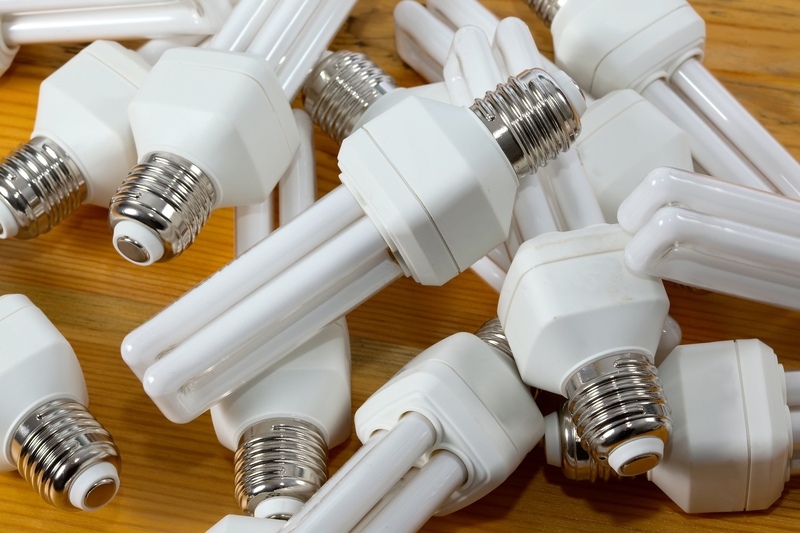Sustainable Alternatives: Embrace Bamboo
Posted on 02/11/2024
Bamboo, an evergreen perennial flowering plant, is gaining immense popularity as a sustainable alternative to many conventional materials. With climate change and environmental degradation becoming more pressing issues, the need for eco-friendly solutions has never been more critical. Bamboo offers a myriad of benefits that make it an excellent choice for various applications, ranging from construction and textiles to household products. In this article, we will delve into the reasons why you should embrace bamboo and explore its numerous advantages.
The Exceptional Growth Rate of Bamboo
One of the most compelling reasons to consider bamboo as a sustainable alternative is its remarkable growth rate. Unlike traditional hardwood trees that can take several decades to mature, bamboo can grow up to 3.5 feet (over a meter) per day under optimal conditions. This rapid growth allows bamboo to be harvested every 3-5 years, compared to 20-50 years for most hardwood trees. By utilizing bamboo, we can significantly reduce the pressure on forests and contribute to reforestation efforts.

Bamboo: A Versatile Material
Bamboo's versatility is another reason why it stands out as a sustainable material. It can be used in a variety of applications, including:
- Construction: Bamboo's high strength-to-weight ratio makes it an ideal material for building structures. It is used in everything from scaffolding and flooring to furniture and even entire houses.
- Textiles: Bamboo fibers can be spun into yarn and woven into fabrics that are soft, breathable, and naturally antibacterial. Bamboo textiles are becoming increasingly popular in the fashion industry.
- Paper: Bamboo can be used to make high-quality paper products. Since it grows quickly, bamboo can provide a sustainable source for paper production, reducing the need for deforestation.
Environmental Benefits of Bamboo
Bamboo offers a range of environmental benefits that make it an eco-friendly choice. These include:
Carbon Sequestration
Bamboo is highly efficient at capturing carbon dioxide from the atmosphere. It absorbs carbon dioxide and releases oxygen at a much higher rate than trees. A bamboo plantation can absorb up to 12 tonnes of carbon dioxide per hectare per year, making it a potent tool in the fight against climate change.
Soil Conservation
Bamboo's root system is extensive and helps stabilize the soil, preventing erosion. This characteristic is particularly beneficial in areas prone to landslides or where soil degradation is a concern. Additionally, bamboo can grow in poor soil conditions, making it ideal for land rehabilitation.
Water Efficiency
Bamboo requires relatively little water to grow. Its root system helps retain water in the soil, making it a drought-resistant plant. This water efficiency makes bamboo a suitable crop for areas facing water scarcity.
Bamboo and Economic Sustainability
Besides its environmental benefits, bamboo also offers significant economic advantages. Growing bamboo can provide livelihoods for millions of people, particularly in developing countries. The bamboo industry supports small-scale farmers, artisans, and entrepreneurs, creating jobs and boosting local economies.
Low-Cost Production
Bamboo is relatively inexpensive to cultivate and harvest. Its rapid growth means that it can be produced at a lower cost compared to other materials. This affordability makes it accessible to a broader range of consumers and industries.
Empowering Communities
In many rural areas, bamboo cultivation and processing can provide a sustainable source of income. By investing in bamboo, communities can develop new skills and enterprises, leading to greater self-sufficiency and economic resilience.

Challenges and Considerations
While bamboo presents numerous benefits, it is not without its challenges. Sustainable bamboo production requires careful management to ensure that it does not lead to monoculture plantations, which can harm biodiversity. Additionally, the processing of bamboo into various products can have environmental impacts if not done responsibly.
Monoculture Concerns
Like any crop, the large-scale cultivation of bamboo as a monoculture can lead to a reduction in biodiversity. It is essential to implement sustainable agricultural practices that promote biodiversity and protect native ecosystems. Intercropping and agroforestry are some methods that can help mitigate these concerns.
Environmental Impact of Processing
The process of converting bamboo into textiles, paper, and other products can have environmental impacts, including the use of chemicals and energy. Companies must adopt eco-friendly processing techniques and source bamboo responsibly to minimize these impacts.
Conclusion: Embrace Bamboo for a Sustainable Future
Bamboo is emerging as a sustainable alternative to many traditional materials, offering a wealth of environmental, economic, and social benefits. Its rapid growth, versatility, and low-cost production make it an attractive option for various industries. Additionally, bamboo's ability to sequester carbon, conserve soil, and use water efficiently positions it as a powerful ally in the fight against climate change.
However, embracing bamboo requires a commitment to sustainable practices. It is crucial to manage bamboo plantations responsibly and ensure that processing methods are environmentally friendly. By doing so, we can maximize the benefits of bamboo while minimizing its potential downsides.
In a world grappling with ecological crises, bamboo offers a beacon of hope. By integrating bamboo into our daily lives and industries, we can take a significant step towards a more sustainable and resilient future. So, whether you are a consumer looking for eco-friendly products or a business exploring sustainable materials, consider embracing bamboo. It is not just a plant; it is a pathway to a greener, healthier planet.
Latest Posts
Innovations Aiming to Reduce Ocean Waste
Reducing Waste in Christmas Celebrations




 020 3743 9508
020 3743 9508


